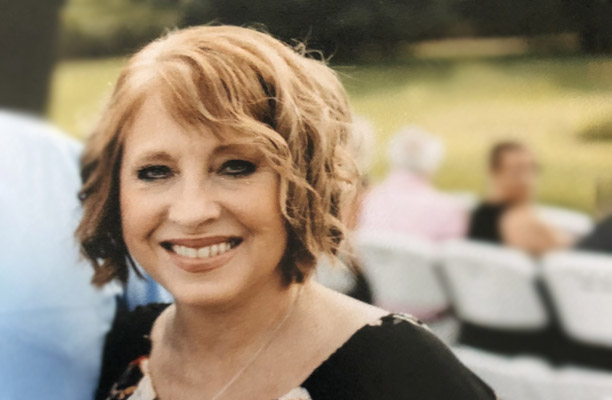
Kimberly Roberts is case manager and supervisor in Murfreesboro, TN. A mother she worked with suggested we feature her as an Outstanding Caseworker, writing:
“Kim always put kids’ safety and well-being first…She is always looking for ways to help families get the help they need, such as fun times, respite, and family therapy.…Kim ensures that once a kid is placed with a family, it is a good match on both sides…My kids will always be grateful for her intervention. She saved their lives multiple times.”
What did you think when you read this mother’s description of you?
It touched my heart! I worked with this family for more than three years, because they had to move out of state partway through the adoption process. It was trying for them, and they could have given up at any time. But they knew they could call me when they needed support—and that I would do whatever I could to make sure they were successful.
You’ve been a social worker for more than 30 years. How did you end up in your current role?
I kind of fell into it.
After I graduated from college, I did a lot of different things—working with people who were elderly and disabled, in special education, with the Medicaid system, and with our Big Brothers/Big Sisters program. Most recently, I did investigations with Child Protective Services.
I now see that a lot of what I learned in these jobs helps me as a case manager. But I had never thought about working with kids in foster care until a friend suggested that I apply for this job five years ago. And here I am!
As caseworkers, we have to handle whatever comes at us. My plans for the day can change in 10 minutes. Share on XWhat are some keys to success in your job?
First is having faith. I couldn’t do this job every day if I didn’t have a relationship with God. I couldn’t look into the eyes of these kids and tell them that it’s going to be OK unless I believed it.
Flexibility and time management are close seconds. As caseworkers, we have to handle whatever comes at us. My plans for the day can change in 10 minutes. There are many times that I have to drop what I am doing and meet a need, from taking a child to a doctor’s appointment to responding to a crisis.
How do you approach your work with children?
Right now, I have 20 kids on my caseload. Many of them are teens. I can be their friend, their mentor, their mom—or even their grandma, because I’m 54 years old. I try to put on whatever hat they need that day.
Sometimes my kids call because they want to share good news; other times they want to vent. I encourage them to do both. Because every child needs to know there is one person who is safe they can say anything to. And sometimes, that person is me.
How many hours do you work each week?
Not 37.5!
What keeps you going—what are the rewards?
When I see a child smile. When I see them open up to a foster parent. When I see a reunification or adoption.
Adoption days are my favorite, because I know that a child is safe and will never have to worry about where they are going to sleep or what they are going to eat again.
You are a supervisor and mentor new caseworkers on your team. What advice do you give them?
You can’t do it all. You can’t please everyone. Every child is not going to go home. There will be times you will be disappointed with the biological parents or with an outcome. But it’s not your fault.
Final thoughts?
I love the kids on my caseload—even the kids who think that they don’t want to be loved! And I learn from them too. Every day.